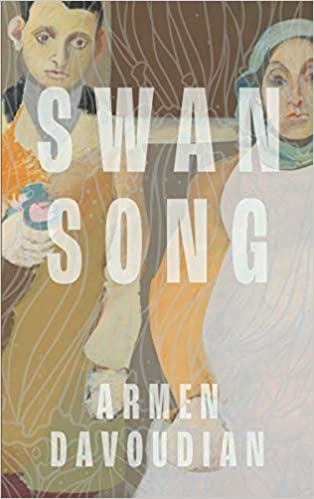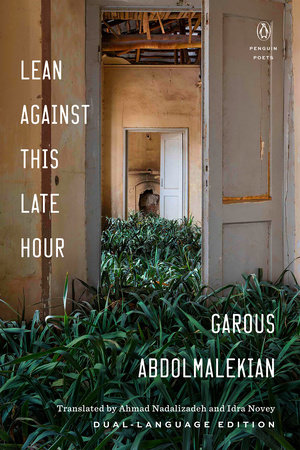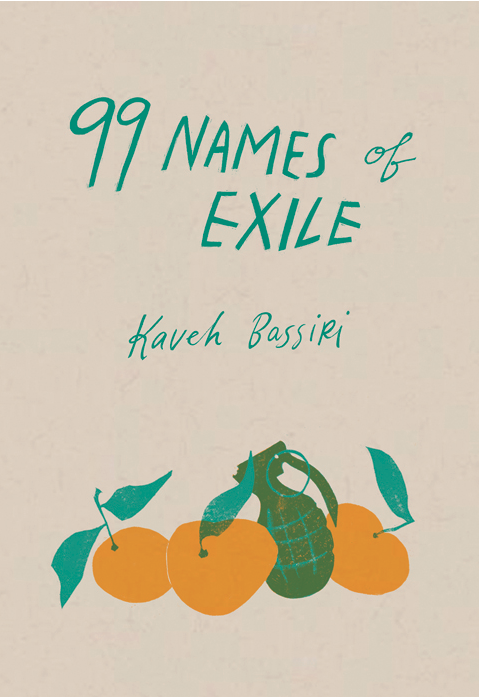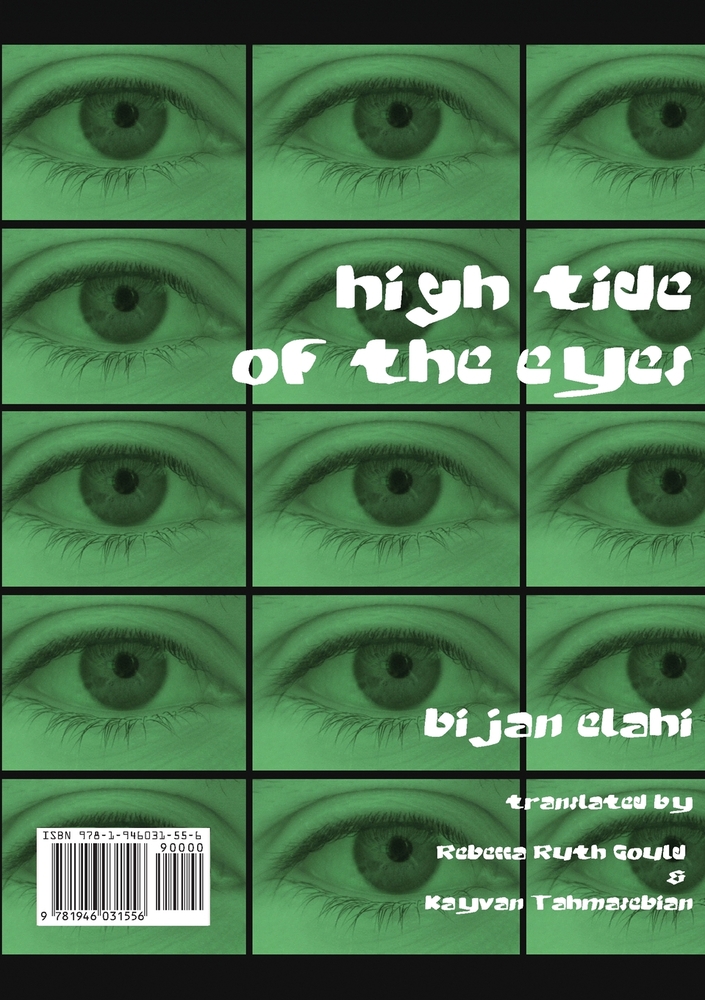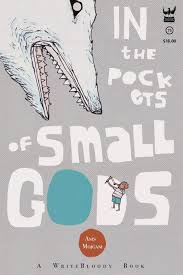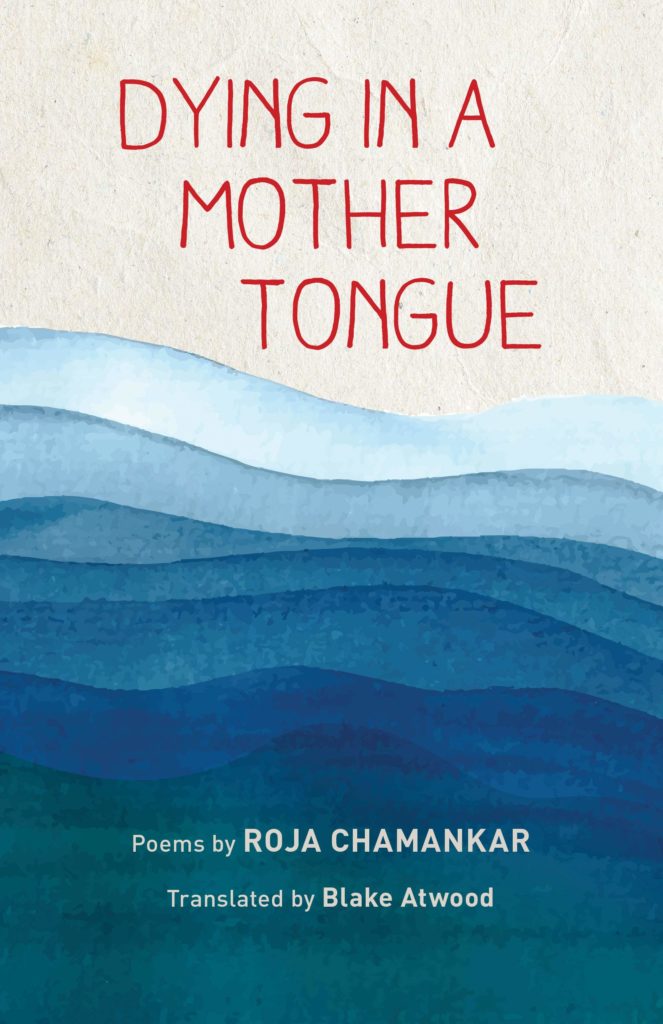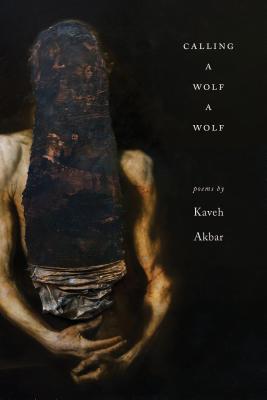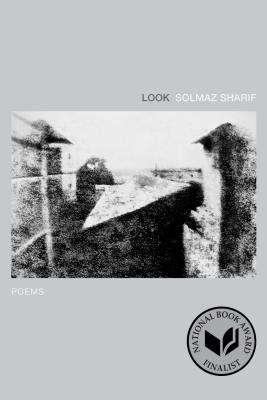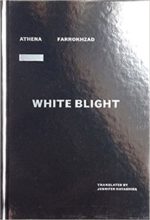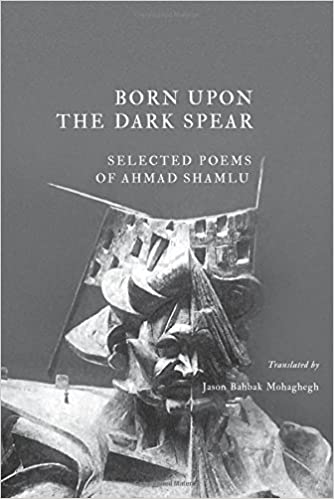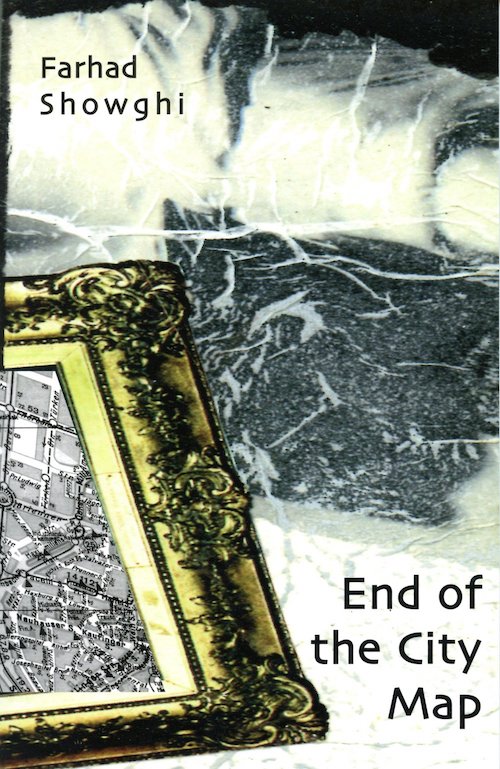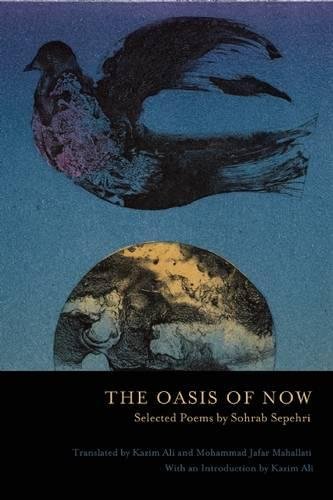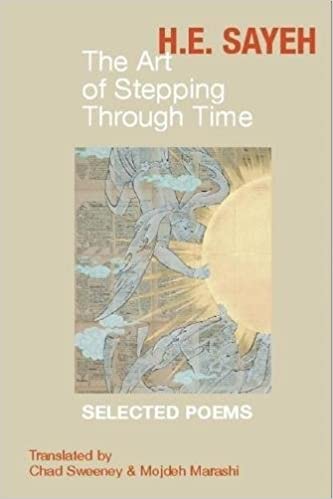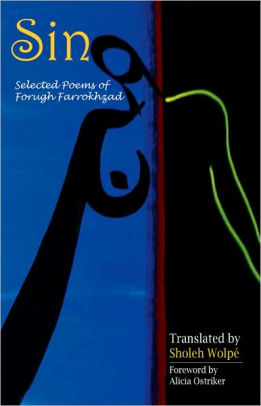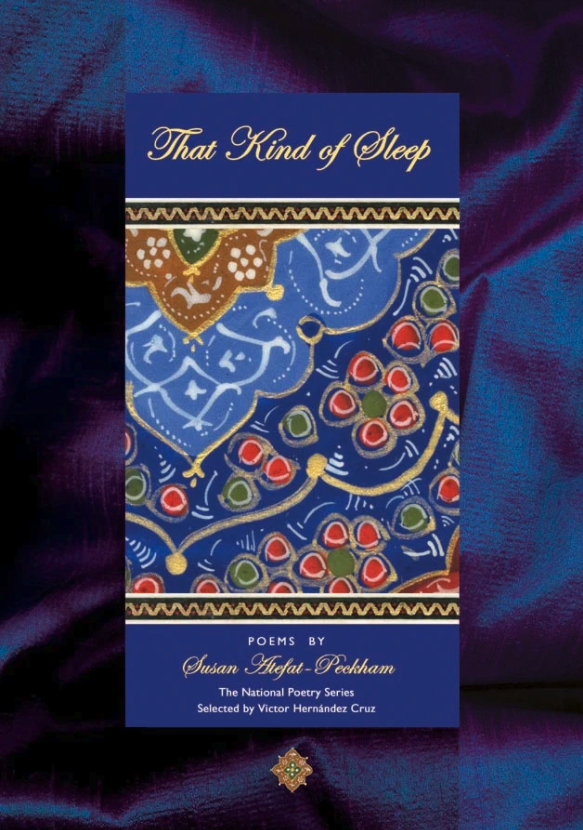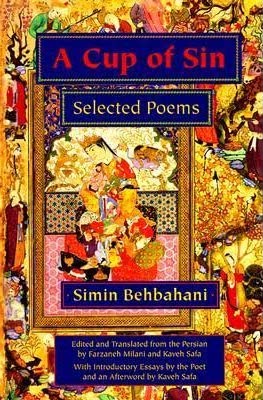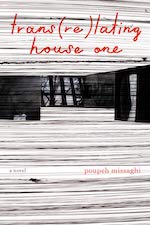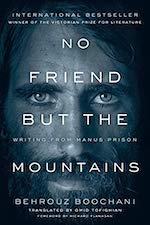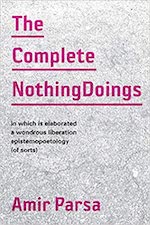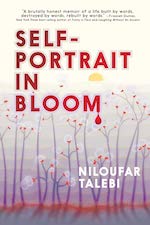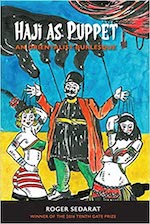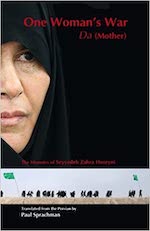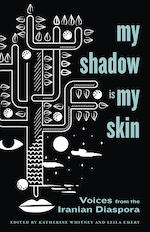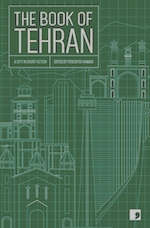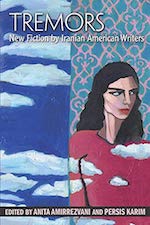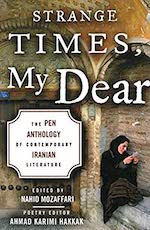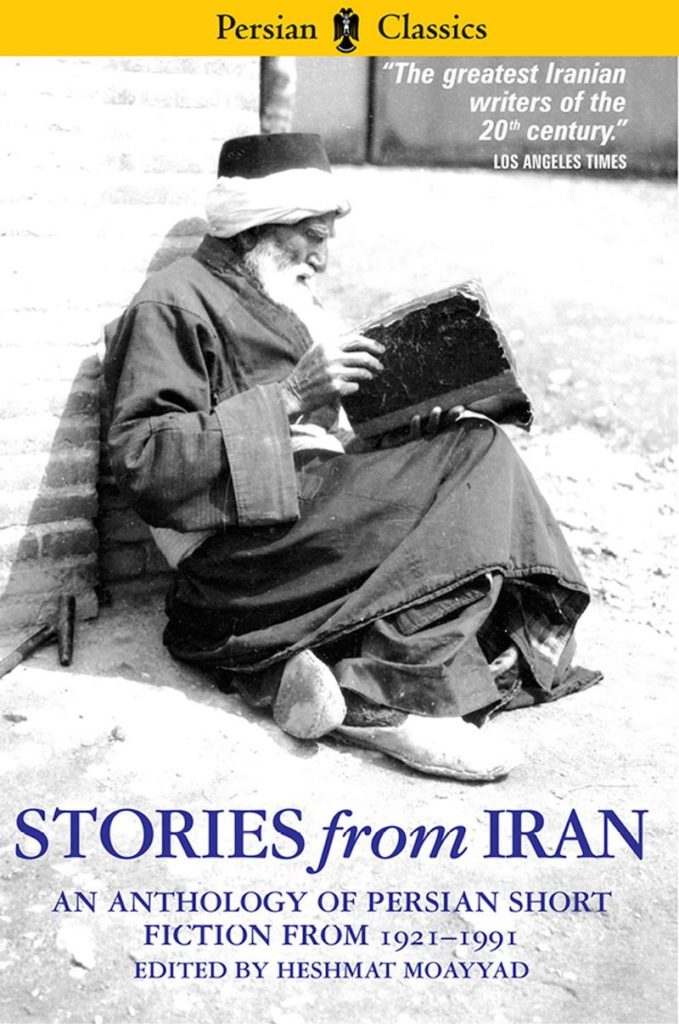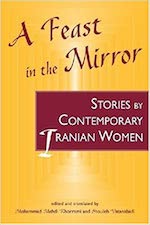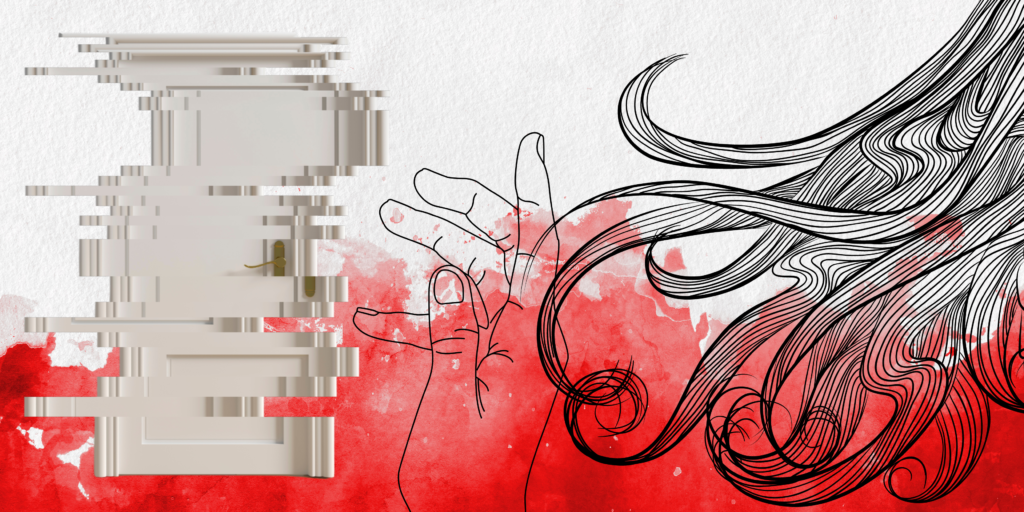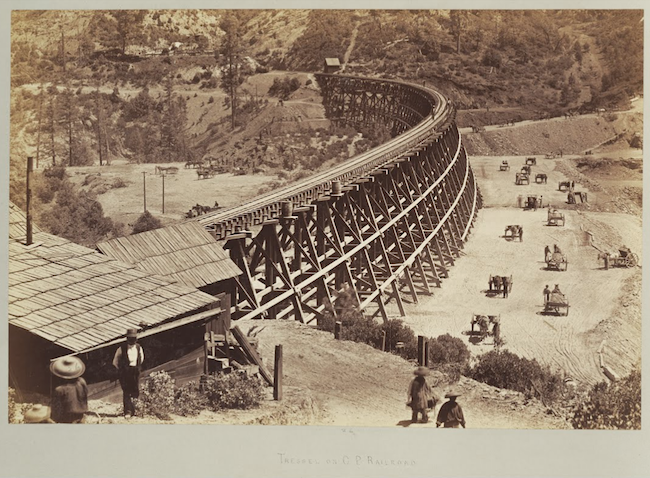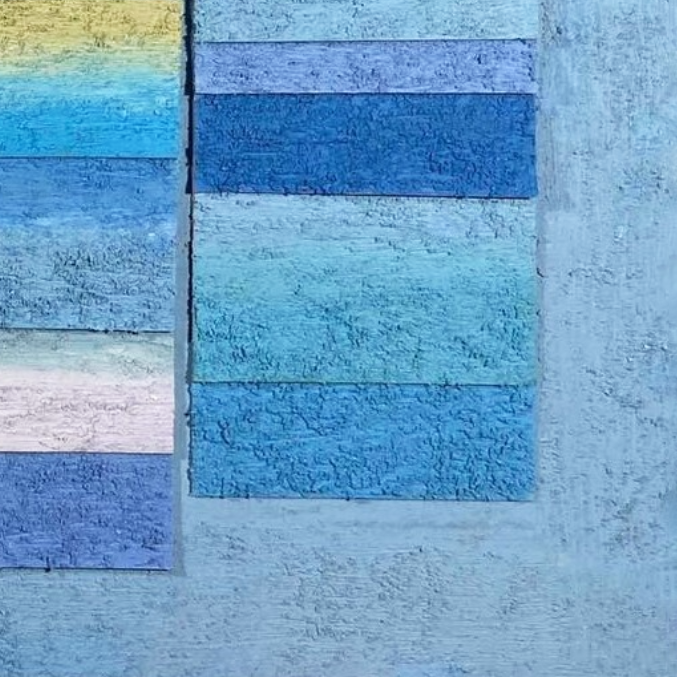We continue in our bookmarks series with works that sing, dissolve boundaries, and gather voices together
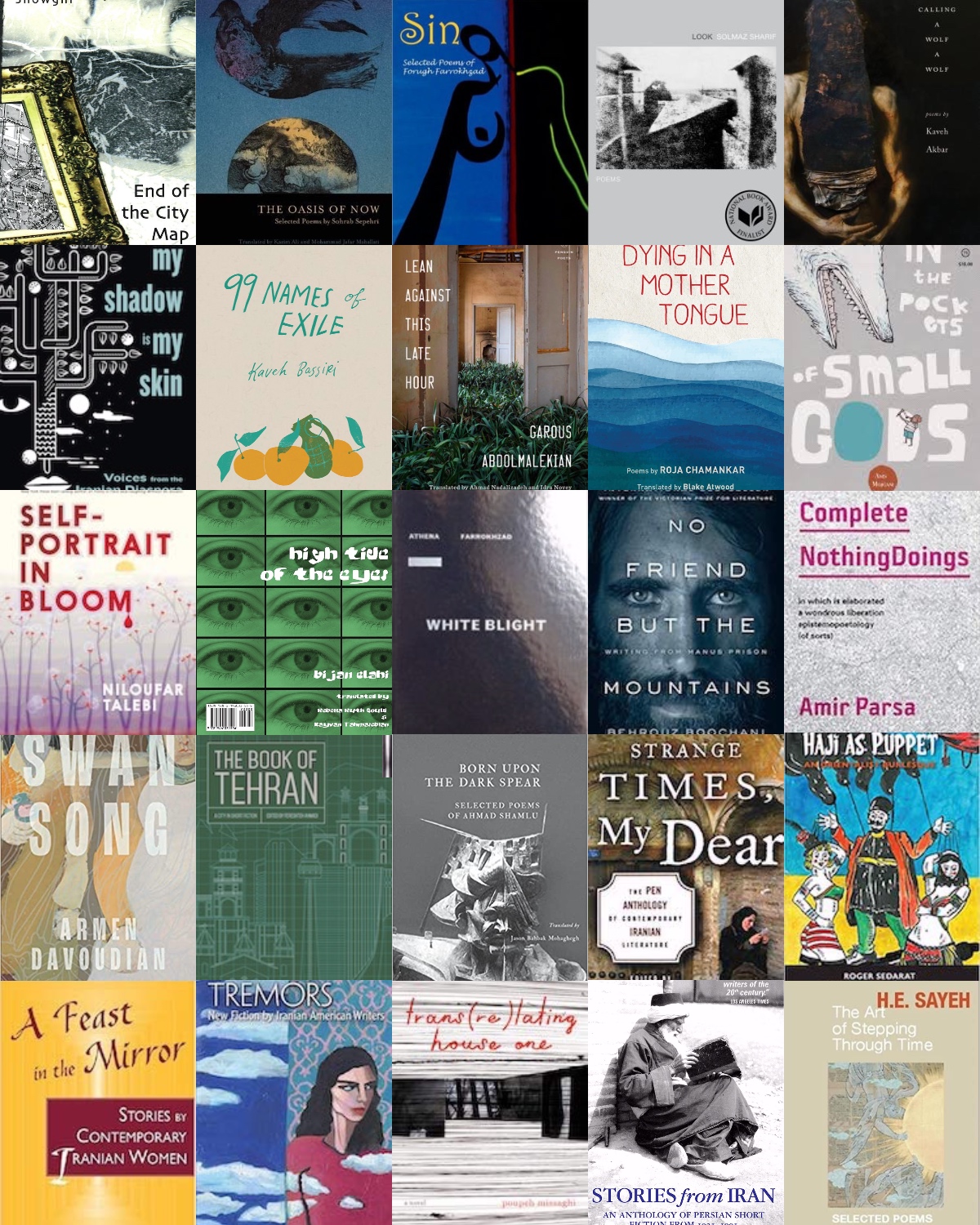
September 22, 2020
[Editor’s Note: This week, we relaunch our monthly Bookmarks feature with a five-part series on 100 essential books by Iranian writers available in English, researched and curated by Niloufar Talebi. Read the introductory essay to the series and the first list of books here, and scroll down for today’s list of poetry, hybrid works, and anthologies.]
◻︎◻︎◻︎
Poetry
We continue our weeklong series of 100 Essential Books by Iranian writers with 20th and 21st century words that sing.
13. Swan Song by Armen Davoudian (Chapbook) (Bull City Press, October 2020)
A swan song is a song of departure: after a lifetime of silence, the legend goes, the mute swan breaks into song just before leaving this world for good. Armen Davoudian’s Swan Song chronicles what it’s like to take leave of a home, a country, a past life. In their search for a home in language, these poems combine the formal resources of English and Persian poetry, turning the immigrant’s permanent sense of loss and rootlessness, the gay person’s sense of alienation, into artistic assets—positions of outsiderhood from which to witness and record. Swan Song won the 2020 Frost Place Chapbook Competition.
14. Lean Against This Late Hour by Garous Abdolmalekian (Penguin Books)
A bilingual edition translated from the Persian by Ahmad Nadalizadeh and Idra Novey. The first selection of poems by renowned Iranian poet Garous Abdolmalekian to appear in English, Abdolmalekian conjures, in spare lines, surreal, cinematic images that pan wide as deftly as they narrow into intimate focus. Time is a thread come unspooled: pain arrives before the wound, and the dead wait for sunrise. Abdolmalekian’s work has been translated into Arabic, French, German, Kurdish, and Spanish.
15. 99 Names of Exile by Kaveh Bassiri (Chapbook) (Newfound, 2019)
“The poems of ’99 Names of Exile’ translate distance and exercise range masterfully. Kaveh Bassiri deepens a literacy of memory by navigating the storied risks and labyrinthine recovery of return” (Geffrey Davis). Winner of the 2018 Anzaldua Poetry Prize and a 2019 National Endowment for the Arts Literature Translation Fellowship, Bassiri is the author of the chapbook, Elementary English (Ahinga Press, November 2020) and of articles on Iranian theater, books, and literature.
16. High Tide of the Eyes by Bijan Elahi, translated from the Persian by Kayvan Tahmasebian and Rebecca Ruth Gould (Operating System Glossarium: Unsilenced Texts, 2019)
Often called the preeminent hermit-poet of Persian modernism, Bijan Elahi was the founder of the leading avant-garde movement within Persian modernism. A true recluse, he retreated into his Tehran home for the last 30 years of his life. This collection brings Elahi’s most important poems, as gathered together in two posthumously published volumes, Vision (2014) and Youths (2015), into English for the first time.
17. In the Pockets of Small Gods by Anis Mojgani (Write Bloody Publishing, 2018)
In the Pockets of Small Gods explores what we do with grief, long after the initial sadness has faded: how we learn to carry it without holding it, how our joy and our pain touch, and at times need one another. Mojgani’s latest collection of poetry touches on many kinds of sorrow, from the suicide of a best friend to a broken marriage to the current political climate. A book of leaves and petals as opposed to a book of stones, In the Pockets of Small Gods encapsulates the human experience in a way that is both deeply personal and astoundingly universal. In April 2020, Anis Mojgani was appointed as the 10th Oregon Poet Laureate. World renowned performer, two-time National Slam Poetry Champion, Pushcart Prize Nominee, winner of the World Cup Poetry Slam, and TEDx Speaker, Mojgani is also the author of The Feather Room (National Book Award nominee), Songs From Under the River, Over the Anvil We Stretch, Junkyard Ghost Revival, and The Pocketknife Bible: The Poems and Art of Anis Mojgani, a fully illustrated and heartbreakingly beautiful poetry memoir that builds the bridge between a grown-up book for children and a children’s picture book for adults, seeking to answer questions through the author’s poems and pictures.
18. Dying in a Mother Tongue by Roja Chamankar, translated from the Persian by Blake Atwood (Center for Middle Eastern Studies, The University of Texas at Austin, 2018)
This collection introduces English-speaking readers to one of the most accomplished and well-loved poets of her generation. Chamankar’s work blends surrealism and the southern coastal landscape of the poet’s upbringing with everyday experiences in a rapidly urbanizing Tehran. While locating herself in the modernist tradition of Iranian poets like Forugh Farrokhzad and Ahmad Shamlu through form and imagery, Chamankar infuses this tradition with concerns unique to a generation that grew up in post-revolutionary Iran and endured the effects of the Iran-Iraq war. Seascapes, love and eroticism, the disconnection of modern life, and myths and fairytales figure prominently in these vivid, lyrical poems. Sometimes abstract, other times surreal—Chamankar’s unique poetic voice, like the sea she returns to again and again, combines and sweeps these experiences to shore with strength, and beauty.
19. Calling a Wolf a Wolf by Kaveh Akbar (Alice James Books, 2017)
Kaveh Akbar dives into the seemingly contradictory worlds of alcohol, drunkenness, and Islam. Akbar’s work appears in The Paris Review, The New Yorker, and Tin House, among others. A champion of poets and poetry, Akbar is the founder of Divedapper, a poetry interview website. Akbar is also the author of a chapbook, Portrait of the Alcoholic, and his new book of poems, Pilgrim Bell is forthcoming from Graywolf Press in 2021.
20. Look: Poems by Solmaz Sharif (Graywolf Press, 2016)
In her debut book, Solmaz Sharif turns words from the Department of Defense Dictionary of Military and Associated Terms against themselves in order to analyze and expose warfare and its shattering aftermath. Born in Istanbul to Iranian parents, Sharif spent most of her formative years in the United States. Look was a 2016 National Book Award finalist and received a long list of other accolades. She was also managing editor at the Asian American Writers’ Workshop.
21. White Blight by Athena Farrokhzad, translated from the Swedish by Jennifer Hayashida (Argos Books; Translation edition, 2015)
The arresting and stark poems in White Blight expose the tectonic layers of an immigrant’s psyche. “‘Your family will never be resurrected like roses after a fire.’ ‘I have spent a fortune for your piano lessons / But at my funeral you will refuse to play.’ These white lines make me ask, what has been bleached out in all of our stories? I read this book, and I remembered my humanity.” (Sueyeun Juliette Lee). Farrokhzad achieves so much with so few words—her distilled language delivers maximum punch and pierces the heart.
22. Born Upon the Dark Spear by Ahmad Shamlu, translated from the Persian by Jason Bahbak Mohaghegh, (Contra Mundum Press, 2015)
Nobel-Prize nominated poet, Ahmad Shamlu (also spelled Shamlou) (1925-2000), is one of the most powerful figures in modern world literature and a cultural icon in Iran. A poet, writer, translator, encyclopedist, and critic, he synthesized Western aesthetic ideas with Iranian traditions and practices to foment a modernist revolution in Iranian poetics and help cement its transition from metrical poetry to free verse, not only in form but also in content. He also wrote by the pen-name “Alef Bamdad,” meaning “Daybreak,” or “Dawn.” These selected works provide a gateway into Shamlu’s rich poetic imagination and output that spanned several decades and dozens of books.
Another volume of Shamlu’s poetry in translation is Love Poems of Ahmad Shamlu, translated from the Persian by Firoozeh Papin-Matin and Arthur Lane, and including a critical introduction by Papan-Matin (IBEX Publishers, 2005). The selection captures Shamlu’s unique depictions of love. The narrator in these poems is a man intoxicated by a female figure with mercurial characteristics. Shamlu’s widely recognized prominence within the intellectual opposition generally turns the focus of mainstream evaluations of his poetry on to the socio-political context of his era. This selection offers an alternative focus on Shamlu’s poetry.
23. End of the City Map by Farhad Showghi, translated from the German by Rosmarie Waldrop (Burning Deck, 2014)
Born in Czechoslovakia and raised in Iran and Germany, Showghi says he starts working from a word that he respects for its uncertainty and aims for the exact spot (in landscape or thought) where the word can come back to itself. Showghi’s prose poems leave the map behind and take us into an uncharted place where apparently simple everyday scenes turn, by a little stretch of language, into the unpredictable and strange. End of the City Map was shortlisted for the 2015 Best Translated Book Award. Showghi is also the translator of Blaues Lied, a selection of poetry by Ahmad Schamlou (also spelled Shamlu and Shamlou).
24. The Oasis of Now: Selected Poems (Lannan Translations Selection Series) by Sohrab Sepehri, translated from the Persian by Kazim Ali and Mohammad Jafar Mahallati (BOA Editions Ltd., 2013)
A bilingual edition of the poetry of Sohrab Sepehri (1928-1980), a major Iranian poet of the 20th century. A painter, wood-worker, and poet, Sepehri wrote poems after journeys through Japan, China, and India, where he was exposed to various cultural arts and spiritual disciplines. Sepehri’s final book is called Hasht Ketab (1976) (Eight Books), a compilation of his eight books of poetry. Kazim Ali is a writer, poet, editor, and translator. Mohammad Jafar Mahallati is an Iranian scholar of Islamic studies and a former diplomat.
25. The Art of Stepping Through Time: Selected Poems of H.E. Sayeh, translated from the Persian by Chad Sweeney and Mojdeh Marashi (White Pine Press, 2011)
This compelling selection is the first to span fifty years of H.E. (Hushang Ebtehaj) Sayeh’s bearing witness to a turbulent Iranian century, especially the national crises which followed the Islamic Revolution of 1979 and the CIA-led coup d’état of 1953. Sayeh shows tremendous range, from the inward, spare lyric to bardic incantations that roll off the tongue and resonate with the voice of the whole nation, blending traditional Persian verse in the spirit of Rumi and Hafez with issues of contemporary Iranian society. Sweeney and Marashi have delivered exquisite translations of this important Iranian poet.
26. Sin: Selected Poems of Forugh Farrokhzad, translated from the Persian by Sholeh Wolpé, with preface by Alicia Ostriker (University of Arkansas Press, 2010)
The author of 5 volumes of poetry, Forugh Farrokhzad (1934-1967) was one of the revolutionary Iranian poets of the 20th century. She invented language that not only modernized Iranian poetics, but expressed a sensuality and political consciousness that transgressed what had been expressed in Iran by women up to then. Farrokhzad’s 21-minute poetic portrait of a leper colony, The House is Black, is considered a masterpiece of world cinema and now available for viewing online. Wolpé is a poet, playwright, editor of anthologies, and award-winning translator of works including Attar’s Conference of the Birds (W. W. Norton & Co., 2018). Farrokhzad has been the subject of much scholarly research (including by Farzaneh Milani, Michael C. Hillman, Dominic Parviz Brookshaw, and Nasrin Rahimieh), writings, translations, installations, performances, and a recent hybrid documentary, Only Voice Remains.
A more academic volume of Farrokhzad’s work in translation is Another Birth and Other Poems, translated by Hasan Javadi and Susan Salle (Mage Publishers, 2010). This updated and revised bilingual edition includes an introduction, letters, interviews, a timeline of Farrokhzad’s life and creative work, two essays analyzing her finest poems, and the Persian text of the poems on facing pages, bringing into perspective the full evolution of Farrokhzad’s work, from introspective reflections on womanhood, love, and religion to broader visions of modern society as a whole.
27. That Kind of Sleep by Susan Atefat Peckham (Coffee House Press, 2001)
This stunning National Poetry Series winner invites readers into images that alternately whet and sting the senses as rich fabrics and scents give way to scenes of women. The poet’s language is immediate, transporting readers to memories and sensations that possessed her.
28. A Cup of Sin: Selected Poems by Simin Behbahani (Middle East Literature In Translation), edited and translated from the Persian by Farzaneh Milani with Kaveh Safa (Syracuse University Press, 1999)
20th century poet Simin Behnahani improvised within the traditional structure of the ghazal to write new poems. Written over almost a half-century, much of Behbahani’s work reflects the traumatic experiences that have shaped recent Iranian history. In a balance of artful inquiry and shocking realism, Behbahani’s language and imagery probe the depths of political, cultural, and moral oppression.
Hybrid
We continue in the series with cross-pollinated works that dissolve boundaries.
29. trans(re)lating house one by Poupeh Missaghi (Coffee House Press, February 2020)
In this debut novel, in the aftermath of Iran’s 2009 election, a woman undertakes a search for the statues disappearing from Tehran’s public spaces. A chance meeting alters her trajectory, and the space between fiction and reality narrows. As she circles the city’s points of connection—teahouses, buses, galleries, hookah bars—her many questions are distilled into one: How do we translate loss into language? Melding several worlds, perspectives, and narrative styles, trans(re)lating house one translates the various realities of Tehran and its inhabitants into the realm of art, helping us remember them anew. Missaghi is also a translator and Asymptote’s Iran editor-at-large.
30. No Friend but the Mountains: Writing from Manus Prison by Behrouz Boochani, translated from the Persian by Omid Tofighian (Anansi International, 2019)
The winner of the Victorian Premier’s Prize for Literature, Australia’s richest literary prize, No Friend But the Mountains is a vivid portrait of five years of incarceration, and a portrayal of the horrors the many stateless and imprisoned refugees and migrants around the world experience. In 2013, Kurdish-Iranian journalist Behrouz Boochani was illegally detained on Manus Island, a refugee detention centre off the coast of Australia. This first-hand account was laboriously typed in fragments on a mobile phone, later edited and translated from the Persian into English. At the juncture of activism, journalism, autobiography, academic discourse, essay, testimony, psychoanalytic inquiry, philosophical and political commentary, it sheds light on the horrors of the border industrial complex. The translator’s preface chronicles the interactive, collaborative, and multidisciplinary approach to composing the manuscript of No Friend but the Mountains.
31. The Complete NothingDoings: in which is elaborated a wonderous liberation epistemopoetology (of sorts) by Amir Parsa (Upset Press, 2019)
The NothingDoings of Amir Parsa constitute a radical shift away from the production of objects AND from the curation of non-object-centered experiences. Parsa is an author, translator, performative lecturer, and conceptual artist with an uncategorizable body of work which has been exhibited in museums and galleries internationally. His literary oeuvre is written in English, French, and Persian, and include: Tractatüus Philosophiká-Poeticüus, Drive by Cannibalism in the Baroque Tradition (all by Upset Press), Erre, Divan, Feu l’encre, the multilingual L’opéra minora, and the ongoing open epic (Open Epic, as rendered by the Elastic Circus of the Revolution). Each of his books interweaves various literary genres to create new ones, employs various registers of textuality and explores possibilities unique to each language.
32. Self-Portrait in Bloom by Niloufar Talebi (l’Aleph, 2019)
This book is at the intersection of autobiography, lyric essay, biography, cultural meditation, photo essay, and includes a bio-portrait and book-length selection of Nobel-Prize nominated Iranian poet Ahmad Shamlou’s (1925-2000) work in Talebi’s translation. Self-Portrait in Bloom could be read as the literary companion to Abraham in Flames (2019), Talebi’s opera with composer Aleksandra Vrebalov, inspired by her coming of age around Shamlou, and trials by fire in the search for truth, a metaphor often used by Shamlou (also spelled Shamlu). Talebi is also the translator of Vis & I, a novel by Farideh Razi, and the editor/translator of Belonging: New Poetry by Iranians Around the World (North Atlantic Books, 2008), a bilingual edition of contemporary poems that expands the canon of significant writing in the Persian language. Talebi and collaborators dramatized a selection of these poems as a theatrical performance called ICARUS/RISE.
33. Haji as Puppet: An Orientalist Burlesque by Roger Sedarat (Word Works, 2017)
What do you get when you cross political theater with poetry with growing up Iranian-American in Texas? A provocative literary burlesque. Sedarat’s fourth book is full-throated political commentary when its reigning restraints are linguistic skill and uproarious humor. Sedarat also created a collaborative live performance piece around his persona, Haji. Sedarat is also a translator and the author of Dear Regime: Letters to the Islamic Republic, Ghazal Games, and Foot Faults: Tennis Poems.
34. One Woman’s War: Da (Mother) The Memoirs of Seyyedeh Zahra Hoseyni, translated from the Persian by Paul Sprachman (Mazda Publishers, 2014)
This best-selling memoir about the Iran-Iraq war has reprinted several times and is a cultural phenomenon in Iran. Da is part autobiography and part oral history of the Iran-Iraq war (1980–88). The first of three parts highlights Hoseyni’s childhood in Iraq and their struggles adapting to life in the Persian Gulf after her family was expelled from their native Iraq. The second chronicles Hoseyni’s experiences during the first three weeks of the Iran-Iraq war, including her activities as a collector of body parts and washer of corpses, her role as a nurse to wounded civilians and soldiers. The final part is devoted to Hoseyni’s recovery from shrapnel wounds and to her married life, spent in two homes. This book was born from over one thousand hours of interviews, and part of a larger project to record the oral histories of Iranian women who took part in the war. Readers see Da as an epic of grief and suffering that evokes the formative event in Shi’ism: the martyrdom of Imam Hoseyn, his family, and a small band of followers at Karbala in 680 A.D., reenacted each year through a multi-day passion pageant called, ta’ziyeh. Hoseyni’s accounts of the martyrdom of her father and brother are so remarkable that they rival the most moving eulogies commemorating the suffering at Karbala. The interviewer’s collaboration functions like the traditional dirges of ta’ziyeh performed during the month of Moharram. Da, in effect, brings the archetypal Shi’a narrative of martyrdom from the seventh century into the present, and thereby contemporizes the slaughter at Karbala in the context of the Iran-Iraq War.
Paul Sprachman is also the translator of Two Centuries of Silence by Abdolhossein Zarrinkoub, and Erotic Persian, a general survey in Persian poetry and prose of the classical to the modern period of metaphoric language and images that arouse sexual desire, both published by Mazda Publishers.
Anthologies and Selections
And now on to gatherings of writers on the page.
35. My Shadow Is My Skin: Voices from the Iranian Diaspora, edited by Katherine Whitney and Leila Emery (University of Texas Press, 2020)
In the four decades since the 1979 Iranian revolution, the diaspora has expanded to include not only those who emigrated immediately after the revolution but also their American-born children, more recent immigrants, and people who married into Iranian families, all of whom carry their own stories of trauma, triumph, adversity, and belonging that reflect varied and nuanced perspectives on what it means to be Iranian or Iranian American. This collection of essays written by 32 Iranian diasporic writers reflects on stories related to immigration, sexuality, religion, and more.
36. The Book of Tehran: A City in Short Fiction (Reading the City), edited by Fereshteh Ahmadi, various translators (Comma Press, 2019)
This collection of ten short stories by ten Iranian writers all set in Tehran reveals the diversity of lives, family feuds, judgemental neighbors, unexpected sexual tensions, and all manner of relationships in a big city like many other big cities.
37. Tremors: New Fiction by Iranian American Writers, edited by Anita Amirrezvani and Persis M. Karim (University of Arkansas Press, 2013)
The twenty-seven authors in Tremors represent the maturing voice of Iranian American fiction from the vantage point of those who were born and raised in Iran, as well as those writers who reflect a more distant, but still important, connection to their Iranian heritage. Karim is the editor of two previous selections, Let Me Tell You Where I’ve Been: New Writing by Women of the Iranian Diaspora, and A World Between: Poems, Short Stories, and Essays by Iranian-Americans (with Mohammad Mehdi Khorrami).
38. Strange Times, My Dear: The Pen Anthology of Contemporary Iranian Literature, edited by Nahid Mozaffari, various translators (Arcade Publishing, 2005)
When Arcade Publishing originally contracted this extraordinary collection of poetry and literature, the Department of the Treasury was attempting to censor the publication of works from countries on America’s “enemies list.” Arcade, along with the PEN American Center, and other organizations, filed a lawsuit in federal court against the United States government. Their landmark case forced the Office of Foreign Assets Control to change their regulations regarding editing and publishing literature in translation. This anthology features numerous writers and translators in various genres.
39. Stories from Iran: An Anthology of Persian Short Fiction From 1921-1991, edited by Heshmat Moayyad, various translators (Mage Publishers, 2002)
This collection of thirty-five short stories by twenty-six of Iran’s best known 20th century writers, including Sadegh Chubak, M. A. Jamalzadeh, Jalal-e Al Ahmad, Esma’il Fassih, Golamhossein Sa’edi, Nassim Khaksar, and Hushang Golshiri, gives voice to the concerns and visions of their generation. Ranging from the dark to the humorous, elegant to the poetic, these stories depict aspects of both traditional and modern life in Iran with its many religious, political, cultural, and class tensions. Arranged in chronological order, these stories span a period in Iranian history from the Constitutional Revolution (1906-11) through the long reign of the Pahlavis (1925-79), the upheavals of the 1950s, the 1979 Islamic Revolution, to 1991.
40. A Feast in the Mirror: Stories by Contemporary Iranian Women, edited by Mohammad Mehdi Khorrami and Shouleh Vatanabadi (Lynne Rienner Publishers, 2000)
The authors of these stories explore new literary styles and forms. A Feast in the Mirror captures the diverse voices of contemporary Iranian women and reflects their powerful contribution to the literary landscape in the golden era of Iranian fiction, offering glimpses into women’s lives and into the labyrinths of Iranian society today. Khorrami and Vatanabadi provide a contextual introduction to the collection, a short introduction to each story, and biographical notes on each author.
< Day One: Introduction + Nonfiction
Day Three: Graphic Novels, Culinary Books, & Children’s/YA Literature >
Day Four: Classics in Translation >>
Day Five: Fiction >>>

